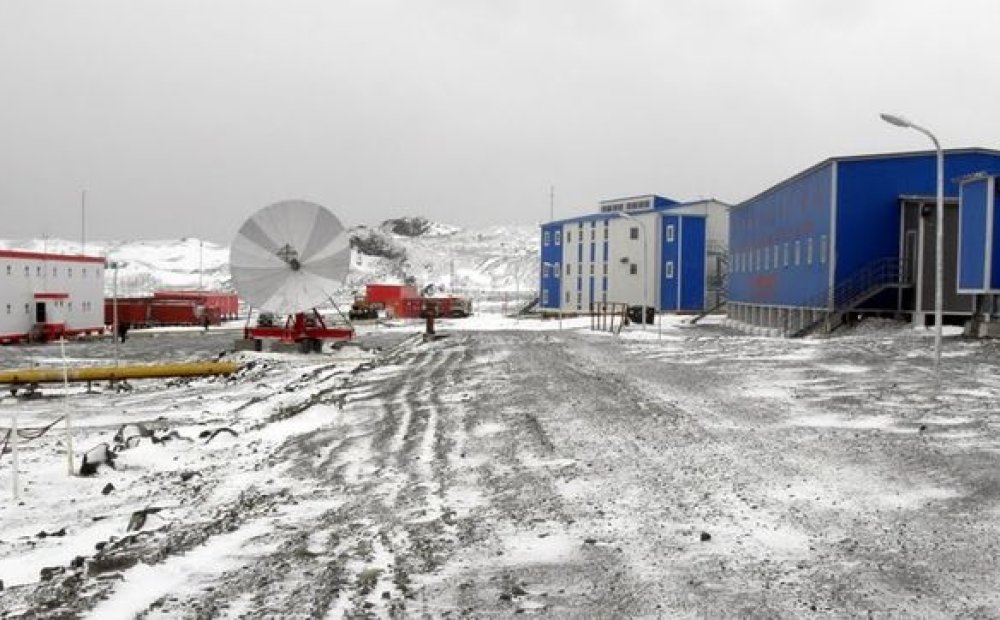China and Antarctica

Evaluating China as an Antarctic State
Professor Anne-Marie Brady
Editor-in-chief The Polar Journal
Woodrow Wilson International Center for Scholars/
Department of Political Science/Gateway Antarctica,
University of Canterbury, New Zealand
Summary:
China now has more money to spend on new infrastructure such as bases, planes and icebreakers than any other state. China's rapid Antarctic—and Arctic—expansion reflects Beijing’s desire to become a maritime, and polar, great power with a voice in the formation of any future governance norms and access to the strategic resources of the polar regions.
China’s Antarctic program captured international attention in January 2014 amid the dramatic rescue of the trapped Russian research vessel Akademik Shokalskiy. Only a week after the rescue, China quietly released the environmental assessment report for its planned fifth Antarctic research station—the third new station in five years. China’s newest base is located at Terra Nova Bay in the strategically important Ross Sea region, where the United States, New Zealand, South Korea, Italy, Germany and France also have research stations. The station will consolidate China's Antarctic interests and help make China a leading contender in polar affairs; less than 10 years ago the country was only a minor player in the polar regions.
In the eyes of most observers, Antarctica is an “international space” which any state has the right to operate in. However, seven nations claim territory in Antarctica (Chile, Argentina, United Kingdom, France, Norway, Australia, New Zealand). The United States and Russia reserve the right to claim the whole of the Antarctic continent.
Antarctica is currently governed by the Antarctic Treaty (1959) and a series of related instruments, known collectively as the Antarctic treaty System. Any nation has the right to sign the Treaty, though only states with a significant and recognized scientific interest in Antarctica can have a say in the governance there. There are currently 48 signatories to the Antarctic Treaty, but only 28 of those states have consultative rights. China joined the Treaty in 1983 and was granted consultative status in 1985. In the 1980s there was a rush of nations wanting to join the Treaty when it was thought that there might be a possibility of mining there. However minerals extraction is now banned in Antarctica under the Protocol on Environment Protection (1991). This protocol can be reviewed at any time if all parties agree.
China’s Antarctic Involvement in 5 Stages
· 1955-1978 Early interest thwarted by politics and economics
· 1978-1984 Cooperation with other Antarctic powers
· 1985-1989 China develops its own Antarctic programme, sets up bases
· 1989-2004 China focuses on improving the quality of its Antarctic science
· 2005-present China upgrades its Antarctic activities: increasing spend, facilities, and research
Since 2005 China has been upping the ante in its Antarctic presence and seeking to increase its level of engagement in Antarctic governance.
China’s key Antarctic tasks 2011-2016 are as follows:
· Build a new ice breaker by 2016
· Two new bases: Taishan, Ross Sea
· Basler airplane by 2014
· Set up air fields at Kunlun, Zhongshan, and Taishan bases
· Develop an international polar affairs campus in Shanghai
· Project to assess polar governance and resources (2012-2016)
In 2011 Chen Lianzeng, Vice Minister of the State Oceanic Administration stated that the overall goal of China’s polar 5-year plan was to increase China’s “status and influence” in polar affairs in order to better protect China’s “polar rights and interests” (Xinhua, June 21, 2011).
What are China’s “rights and interests” in Antarctica?
China characterizes its interests in Antarctica under the following headings:
· Security
· Resources
· Science and Technology
China’s rights in Antarctica are as follows:
· Rights to engage in Antarctic science.
· Rights to apply for permission to set up new scientific bases in Antarctica.
· Right to inspect other nation’s Antarctic bases.
· Rights to access other Antarctic states’ science data.
· Rights to participate in Antarctic governance under existing norms and agreements.
· Rights to participate in Antarctic Treaty committees and working groups.
· Rights to participate in setting any new norms in Antarctic governance.
· Rights to fish in Antarctic waters.
· Rights to access Antarctic freshwater.
· Rights to engage in bioprospecting in Antarctica.
· Rights to send tourists to Antarctica.
· Rights to jurisdiction over its own citizens in Antarctica.
· Rights to use Antarctic seas and airspace for peaceful activities.
In theory all states are equal in Antarctic governance, as all consultative parties to the Treaty only have one vote and all decisions are made on the basis of full consensus. However voting blocs do form in Antarctica, and some states are more equal than others when it comes to having influence in Antarctic decision making and governance.
So how do states acquire “status and influence” in Antarctic governance?
· The quantity, location, and type (all year, or summer-only) of their Antarctic scientific bases.
· The quality of their science.
· The size of their spend in Antarctica. Budgets can be divided into: operation costs; research funds; investment in capacity (bases, planes, icebreakers).
· The number of citizens they have in Antarctica.
· The level and spread of their engagement.
· The number of working papers and new governance initiatives they propose.
China’s strengths in Antarctica are their current capacity to invest in new infrastructure; as well as their state-of-the art new facilities. Their current weaknesses are: the quality of their research compared to other Antarctic states; and their level of contribution to governance working papers and working bodies.
Using Chen Lianzeng’s measure of success, if we were to rank China’s progress in gaining more “status and influence” in Antarctic affairs, China ranks as follows:
· Number, location, and type of bases: 3rd after the USA and Russia
· Quality of science (based on citation rates, ranking of journal): Relatively low[i]
· Quantity of science: High
· Size of budget (operation costs+research funds+capital investment): Number one
· Citizens in Antarctica (Scientists+tourists+fishers): 2nd after the United States
· Level and spread of engagement: 3rd after the United States and Russia
· Working papers/new governance initiatives/committee membership and leadership: Low level of contribution
China would like more influence in polar affairs, so what is its position on current and future governance challenges in Antarctica?
· Access to, and quotas for, fishing; tourism; bioprospecting: take up rights before they are taken away.
· Environmental protection: “soft presence” 软存在 (in other words a gambit to control territory).
· Mineral resource exploitation: “matter of time”.
· Sovereignty: res nullius (不属于任何国家).
Closing Policy Recommendations
· China’s Antarctic interests and perspectives are broadly similar to those of both the United States and Russia. This means there are many opportunities for partnership, but also some potential conflicts of interest.
· China should be encouraged to issue an official Antarctic strategy and formally state its Antarctic interests and policies. Transparency builds trust and the governance issues Antarctica faces will require skilful diplomacy to achieve a peaceful outcome.
· The United States and other Antarctic states with an interest in environmental protection in Antarctica can do more to partner with China on projects which will strengthen China’s ability to preserve the unique Antarctic environment.
[i] See an evaluation of the quality of China’s Antarctic scientific output in 2004 Prabir G. Dastidar and Olle Persson, “Mapping the Global Structure of Antarctic Research Vis-à-vis Antarctic Treaty System,” Current Science 89:9 (2004), pp. 1552–54; and a 2012 ranking by John R. Dudney and David W.H. Walton, “Leadership in politics and science within the Antarctic Treaty,” Polar Research, 2012, 31 11075 DOI: 10.3402/polar.v31i0.11075.
Speaker

Professor, University of Canterbury and Executive Editor of The Polar Journal
Hosted By

Kissinger Institute on China and the United States
The Kissinger Institute works to ensure that China policy serves American long-term interests and is founded in understanding of historical and cultural factors in bilateral relations and in accurate assessment of the aspirations of China’s government and people. Read more


Indo-Pacific Program
The Indo-Pacific Program promotes policy debate and intellectual discussions on US interests in the Asia-Pacific as well as political, economic, security, and social issues relating to the world’s most populous and economically dynamic region. Read more


China Environment Forum
China’s global footprint isn’t just an economic one, it’s an environmental one. From BRI investments in Africa and Asia to its growing presence in Latin America, understanding China’s motivations, who stands to gain - and who stands to lose - is critical to informing smart US foreign policy. Read more


Polar Institute
Since its inception in 2017, the Polar Institute has become a premier forum for discussion and policy analysis of Arctic and Antarctic issues, and is known in Washington, DC and elsewhere as the Arctic Public Square. The Institute holistically studies the central policy issues facing these regions—with an emphasis on Arctic governance, climate change, economic development, scientific research, security, and Indigenous communities—and communicates trusted analysis to policymakers and other stakeholders. Read more
